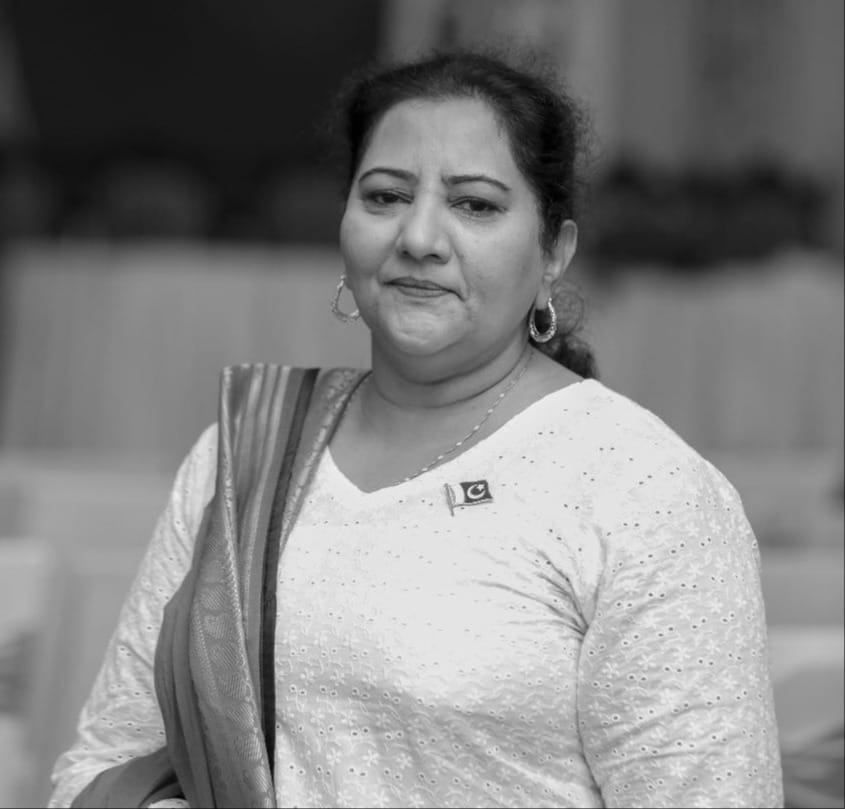By: Nabila Feroz Bhatti
On April 8, the Gilgit-Baltistan Chief Court presented Falak Noor with a critical choice: to return to her parents or stay with Fareed Alam, her husband. The court directed the Gilgit police SSP to ensure her safe passage to either destination within the district. However, this decision has sparked significant controversy, with critics arguing that it failed to consider key aspects of the case, including Falak’s age and the influence exerted over her by her abductors.
Falak Noor, a 12-year-old girl according to her legal documents, was not given adequate psycho-social rehabilitation during her brief five-day stay at the Darul Aman shelter. Emotional instability and pressure led her to choose her 17-year-old husband, Fareed Alam. Civil society and human rights activists have voiced their concerns, stating that the court’s ruling essentially returned Falak to her abductors, without proper consideration of her best interests.
Israruddin Israr, regional coordinator of the Human Rights Commission of Pakistan, criticized the verdict, stating it could open the door to more cases of child marriage. He argued that the court should have informed Falak that she could marry only upon reaching the legal age and should have kept her in a child protection unit until then. Retired Justice Nasira Javaid Iqbal echoed these sentiments, noting that the court overlooked Falak’s inability to make a sound decision under stress.
Child rights expert, Advocate Syed Miqdad Mehdi, also condemned the judgment, emphasizing that it was not in line with child rights principles. He highlighted that the case was mishandled, with improper procedures in the investigation and a disregard for “informed consent” in the context of forced conversion and marriage.
This is not an isolated incident. In 2020, the Lahore High Court controversially ruled in favor of Muhammad Nakash Tariq, despite allegations from Maira Shehbaz that she was abducted, drugged, and raped before being forced to convert to Islam and marry her captor. She later escaped, further highlighting the flaws in handling such cases.
However, there have been progressive judgments from superior courts emphasizing the state’s duty to protect children from abuse and exploitation. For instance, Justice Anwaar ul Haq Pannu of the Lahore High Court delivered a detailed judgment on child marriages, underscoring the negative effects and legal gaps. Similarly, the Islamabad High Court, in Alishba Bibi’s case, directed the federal government to combat child marriages, affirming that setting a minimum marriage age is consistent with Islamic injunctions.
In Pakistan, federal law sets the legal marriage age at 16 for girls and 18 for boys, but this varies by province. Sindh, for instance, has set the age at 18 for both genders, making underage marriage a cognizable and non-compoundable offense. Punjab allows girls to marry at 16, while Khyber Pakhtunkhwa and Balochistan adhere to the 1929 Act.
International conventions like the UNCRC and CEDAW, which Pakistan is a signatory to, mandate the minimum marriage age to be 18. The UN Sustainable Development Goals also pledge to end child marriages by 2030. The core principle of marriage is consent, which a child, by definition, cannot fully provide.
To combat child marriages effectively, Pakistan needs comprehensive legal, policy, and administrative measures. This includes legislation across all regions enforcing a minimum marriage age of 18, sensitizing and holding accountable state personnel involved in child marriage cases, and ensuring mandatory CNICs for marriage registration.
Human rights institutions and civil society organizations must advocate for robust child protection laws, while the National Commission on the Rights of Child should offer policy recommendations. Victims of child marriage need special safeguards, including protection, privacy, rehabilitation, and fair legal participation.
Raising public awareness on the harms of child marriage and enforcing punitive laws is crucial. Education is vital in preventing child marriages and ensuring that future generations lead healthier and more empowered lives.
The writer is a human rights activist and columnist. She can be reached at [email protected] and on X: @NabilaFBhatti.


